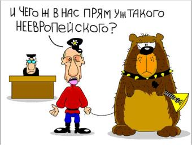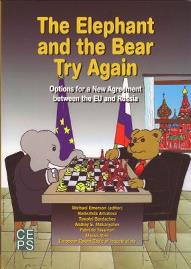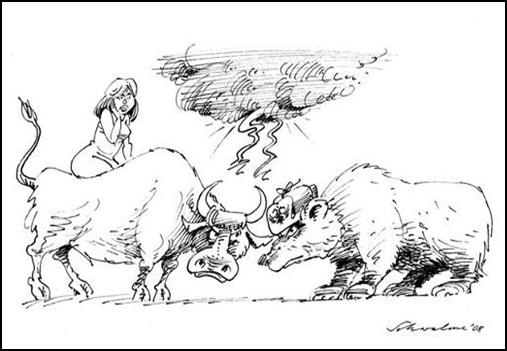

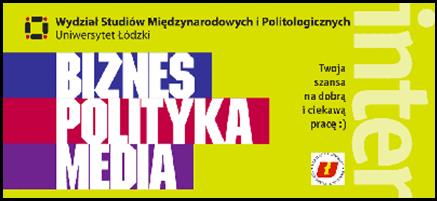

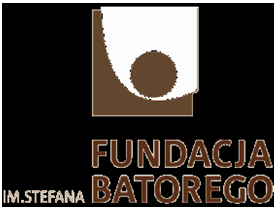
|
East East: Partnership Beyond Borders Program: |
|
Phases of the project
20-23. 05. 2009 – seminar at the University of Ivanovo; participants: Prof. O. Riabov, Prof. A. de Lazari, Prof. I. Novikova, Olga Nadskakuła, Magdalena Żakowska, 4 students from the University of Lodz, 4 students from the University of Latvia, 20 students from the University of Ivanovo (Department of Sociology, Department of International Relations).
06-08. 09. 2009 – seminar at the University of Lodz; participants: Prof. A. de Lazari, Prof. I. Novikova, Prof. O. Riabov, Olga Nadskakuła, Magdalena Żakowska, 4 students from the University of Ivanovo; 4 students from the University of Latvia; 20 students from the University of Lodz, Faculty of International and Political Studies, International Relations – audience.
09-12.06. 2010 – seminar at the University of Latvia; participants: Prof. I. Novikova, Prof. A. de Lazari, Prof. O. Riabov, Olga Nadskakuła, Magdalena Żakowska, 4 students from the University of Lodz, 4 students from the University of Ivanovo, 20 students from the University of Latvia – audience.
10. 2010 - final Internet survey of the student participants of the project. It would allow us to compare the changes in the participants’ knowledge and attitudes and thus to evaluate the effectiveness of the project. |
|
Project Summary
As a result of the accession of Poland and other countries of the former eastern block to the EU, the relations between them and Russia have obtained a new dimension. The hitherto contacts between the EU members (both old and new ones) and Russia have been affected by mutual misunderstanding, historical resentments and conviction about impossibility of cross-cultural dialogue because of political, social and cultural alienness of the EU and Russia. The current context of these relations requires new levels of dialogue, especially within the young generation, which is responsible for its quality and perspectives in the future. The project is aimed to contribute in solving this problem. Its main purpose is to provide cross-cultural dialogue within the participants of the project – the present and future experts of international relations and specialists in the field of Russian Studies. The applicants intend to conduct three seminars in Ivanovo, Riga, and Lodz with approximately 80 Polish, Russian and Latvian participants, including professors and students in the fields of Political Sciences, Russian Studies, and International Relations. We also plan to arrange the debate ‘Russia in Integrating Europe’ within the Festival of Dialogue of Four Cultures in Lodz. Besides that, we want to give the participants an opportunity to make librarian research for their Master’s theses in Lodz, Riga, and Ivanovo. One of the objectives of the seminars is to show the positive aspects of integrating Europe, ideas of a state of law, democracy and civil society and to stimulate a discussion about possibility of ‘transplantation of values’ between Europe and Russia - how and in what fields it could be done. |
|
Activities to be conducted within this project:
Preparation and publishing of Internet survey on the server of the Faculty of International and Political Science Studies of the University of Lodz. The questionnaire will also be distributed among the participants of the project. The questionnaire would allow us to clear up vocabulary of the main concepts of the project (democracy, state of law, human rights, civil society, tolerance, ‘Russianness’, ‘Europeanness’) as well as the participants’ attitudes to the cultures of each other. Seminar in Ivanovo. Topics to be discussed: - Stereotypes, prejudices, conflict of interests in Polish-Russian and Latvian-Russian relations and between Russia and EU; - Political and cultural identity of Russia; - A role of Russia in integrating Europe; - Research work in the University of Ivanovo Library (for the MA and PhD students from Poland and Latvia). 3) Seminar in Latvia. Topics to be discussed: - Mutual prejudices between Latvians, and wider, Baltic nations, and Russians; - Modernization of the ‘Russian Bear’?: the chances for liberalization, democratization and for creating a civil society in Russia; - EU-Russia: threats, hopes and prognoses; Russian (Russian-speaking minorities – this would be precise) minorities in Latvia and Baltics and in the whole Europe as a mediator between Russia and Europe. - Research work in the Library of University of Latvia for the MA and PhD students from Poland and Russia. Seminar in Lodz. Topics to be discussed: - Polish-Russian stereotypes and prejudices: Polish and Russian ‘cultural programming’ with its historical background; Polish and Russian historical policy; - Should Poland and Europe be afraid of Russia? - What could Europe offer to Russia; what Russia could teach Europe?: Ex oriente lux – ‘Russian’ and ‘universal’ values; Russian occidental discourse; Russia in Europe and on the way to ‘Europeization’; Russian and European ways of multiculturalism. - Debate about the role of Russia in integrating Europe within the Festival of the Dialogue of Four Cultures. - Librarian research in the Library of the University of Lodz of the materials for Master’s theses by the students from Latvia and Russia. Target audience: students of the faculties of international and politological studies of Universities of Lodz, Ivanovo and Riga; Beneficiaries of the project: students and postgraduates from the Universities of Lodz, Ivanovo and Riga. Working languages and translations of this project: English, Russian. |
